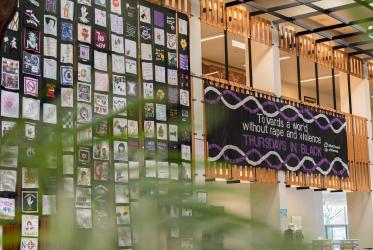The WCC programme helped train students to prevent stigma and discrimination, and to talk about masculinity and femininity in constructive ways.
After four years of collaboration, students and teachers were able to evaluate their progress.
Over the four years, there were nine meetings gathering 53-122 students, averaging 58 students per session. An average of four teachers regularly participated in the different meetings. At least 60 students from the third through sixth grades received holistic support.
An evaluation found marked progress in students’ knowledge of HIV and AIDS. Eighty-five percent of the school’s students have good command of the pathways of HIV infection, means of prevention and treatment, and access to up-to-date information. One 12-year-old said; “We are ahead of many students in other schools regarding knowledge about AIDS,” with another student adding, “We have become peer educators of classmates in other schools and we talk about HIV with no problem.”
The school’s director reported that, since the WCC Ecumenical HIV and Aids Initiatives and Advocacy programme began, girls no longer complain of inappropriate touching, name-calling or indecent acts against them. No cases of rape were since reported either.
Students also said that they better understand how their bodies work—and how to better control them. They also feel more confident about breaking the silence in matters that pertain to them and, above all, to have the courage to talk about sexuality with their parents. Young boys were equipped during several meetings to effectively combat violence against girls and women.
Mr Blantaré, mathematics teacher, congratulated the WCC Ecumenical HIV and Aids Initiatives and Advocacy programme for building student’s capacity on HIV in general, and sexual and reproductive health in particular. According to him, “it is a practical supplement to the course on human reproduction.” He suggests that the WCC Ecumenical HIV and Aids Initiatives and Advocacy programme give greater attention to girls in fifth and sixth grades to prepare them to better cope with puberty because, according to him, “the brilliant students shut down during puberty.” He added that many students receiving support have evidenced better academic results.








